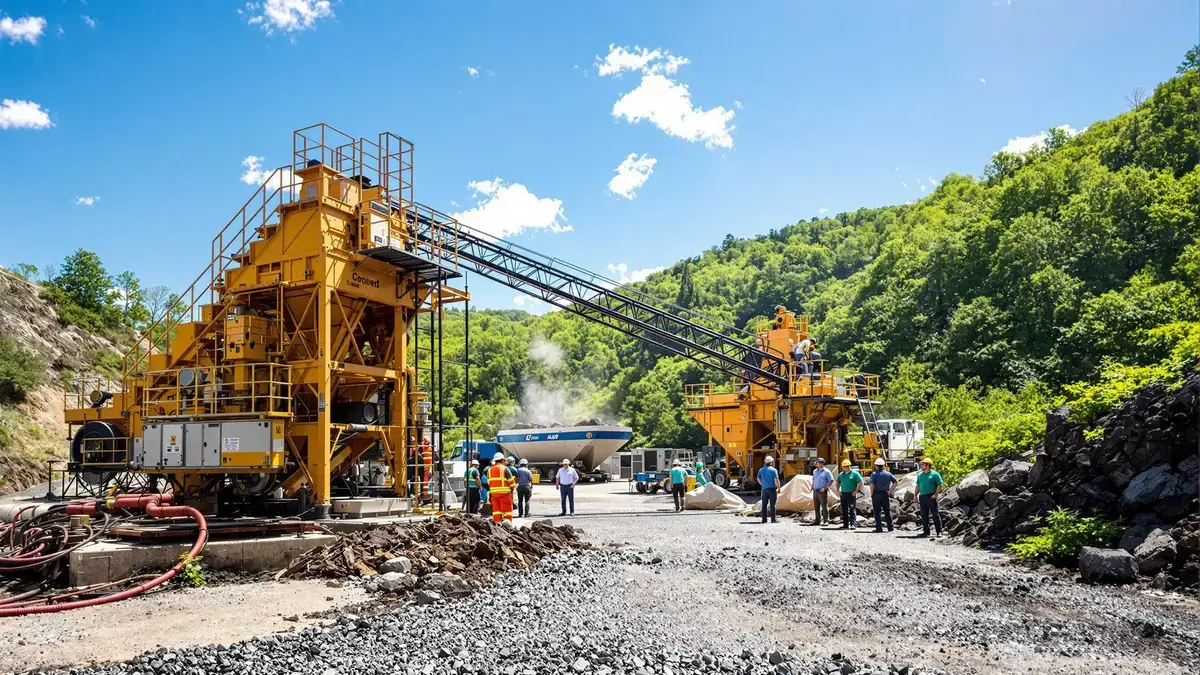The importance of copper in the field of electricity cannot be underestimated, as it is a fundamental element for modern electrification. With a growing demand for applications such as wiring, plumbing, and batteries, global production has risen to 22 million tons in 2023, with projections reaching 50 million by 2050. However, the polluting extraction of this metal raises ecological concerns, prompting researchers to develop sustainable methods.
The essential information
- Copper plays a crucial role in global electrification.
- Projections: extraction of 50 million tons by 2050.
- Research on sustainable extraction methods is ongoing.
- Goal: reduce the environmental impact of the mining industry.
Electricity relies on copper
Electricity is ubiquitous in our daily lives, and its efficiency relies on specific materials, particularly copper. This metal is essential for electrification, allowing the conduction of electrical energy through various systems and infrastructures. Its ability to conduct electricity makes it an indispensable material in the energy sector, spanning from transportation to telecommunications.
Growing use of copper
Over the years, the use of copper has significantly increased. Not only is it used in electrical wiring, but it is also found in various fields such as plumbing and batteries. With a global consumption of 22 million tons in 2023, projections indicate that this demand could reach 50 million tons by 2050. This underscores the crucial importance of copper in the development of electrical infrastructures and sustainable technologies.
Impact of extraction on the environment
However, copper extraction is often associated with polluting practices that have a significant impact on our planet. Traditional extraction methods lead to ecosystem degradation and pollutant emissions. This raises major concerns about the sustainability and environmental viability of future mining projects.
Search for sustainable solutions
In this context, the mining company Rio Tinto in London is committed to exploring more sustainable extraction methods. With an investment of $150 million, it is dedicating its efforts to research on metals, seeking to develop techniques that minimize environmental impacts. The goal is clear: to extract copper without pollutants or harmful residues, thus addressing the growing need for sustainable energy solutions.
Antarctica: An Explosive Underwater Discovery Could Worsen the Climate Crisis
Exploring new extraction methods
Among the promising initiatives, researchers are exploring the possibility of extracting copper in liquid form. This innovative method involves pumping saline water from the surface, a process that could significantly reduce the ecological footprint of extraction. Scientists are also studying solutions that utilize bacteria and plants to facilitate the extraction process, making operations more environmentally friendly.
Future prospects
The future prospects are encouraging. Current research aims to identify energy-autonomous mines capable of supporting extraction while preserving natural resources. This approach could revolutionize the mining industry, blending economic development with environmental responsibility. Innovation and research in the field of copper are essential to ensuring renewable and sustainable energy for future generations, thus addressing the urgent need to balance industrial demands with the protection of our planet.
















